Can you cut 1 Tonne of carbon pollution out of your life?
Take the challengeDo you feel overwhelmed when pests attack your vegetable garden that you have lovingly cared for? Instead of reaching for harsh pesticides consider an approach that works with the environment.
Using natural pest control involves taking a more holistic approach to your gardening and considering it as an ecosystem that needs to be in balance.
Take minimally invasive action
When action needs to be taken it's important to do this in as minimally invasive way as possible so as to not upset the delicate eco-system. This is better both for your garden and for the environment.
Learn from infestations
Major infestations are a sign that something is out of balance in your garden so take this as a sign to help guide things back into balance and to build your gardening knowledge.
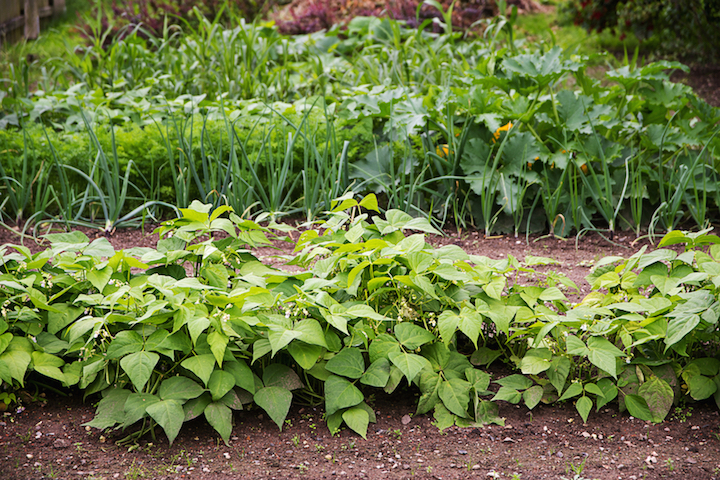
Keep your plants healthy
This may seem obvious but by keeping your plants well nourished they are less likely to become infested by pests and diseases in the first place. It is weak and overfed plants that are more vulnerable to being attacked.
Be prepared to put up with some damage
In an organic garden you will have a few bites taken out of some plants but you can plan for this and just grow extra and share with the creatures in your garden. It's a small price to play for organic vegetables. Action is only required when pest numbers are high and serious damage is occurring.
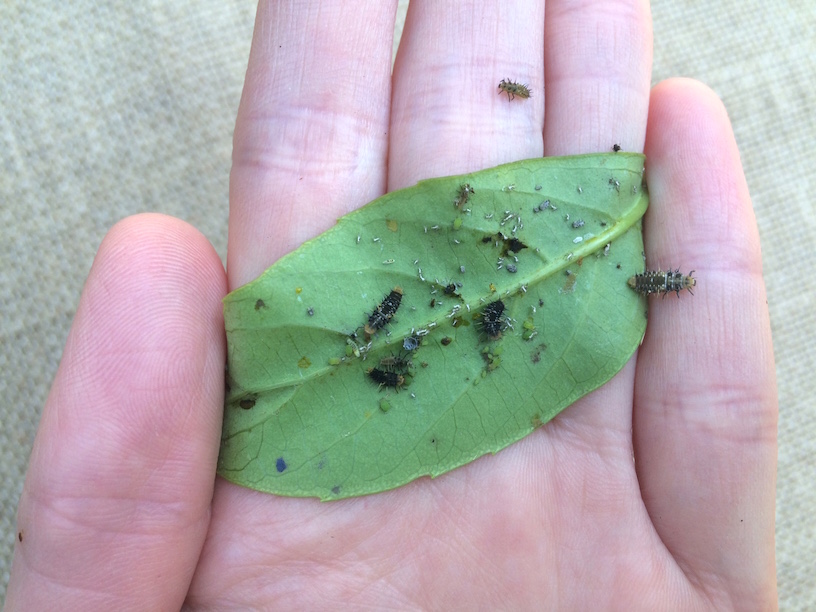
lady beetle larvae and aphids on the back of a leaf
Get to know your garden guardians
It's a good idea to get to know what beneficial garden critters look like so you know if your pals are already onto any infestations you can leave them to do their work. Most people know what an adult lady beetle looks like, but do you know what a baby lady beetle looks like? There are lots of images online or you can borrow a book from your local library.
Create habitat to attract natural predators
By creating a habitat to support a range of beneficial predators you can have a whole team of creatures doing your work for you and keeping things in balance. Plant native shrubs and trees for native birds, supply rocks and logs for lizards, and if you have room, a pond for frogs is a fabulous addition. Also be aware that ants and spiders are excellent predators of many pests so don't kill them unless they are doing any real damage or posing a threat.
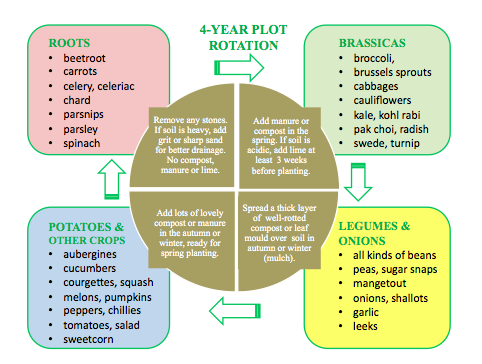
image: wollygreen.com
Practice crop rotation
This is simplier than it sounds. Related plants tend to suffer from similar pests and diseases and take similar nutrients out of the soil. If they are grown in the same garden bed for several seasons pests in the soil can build up and nutrients can become depleted. Plants are rotated based on their family groups, usually on a four or six bed rotation system.
Avoid using pesticides
By spraying with pesticides you will not only kill the pest attacking your plants but you will also kill beneficial insects such as those who prey on these pests. If you do this then the next pest to enter will end up causing even more damage because the natural predators have been wiped out. Also, be aware that a product labeled as 'natural' can still cause a lot of harm to an eco-system.
Confuse and repel pests by planting strongly scented plants
Grow plants that have strong scent such as herbs in between your crops to confuse and repel pests. Look up information on companion planting for specific plants you are growing.
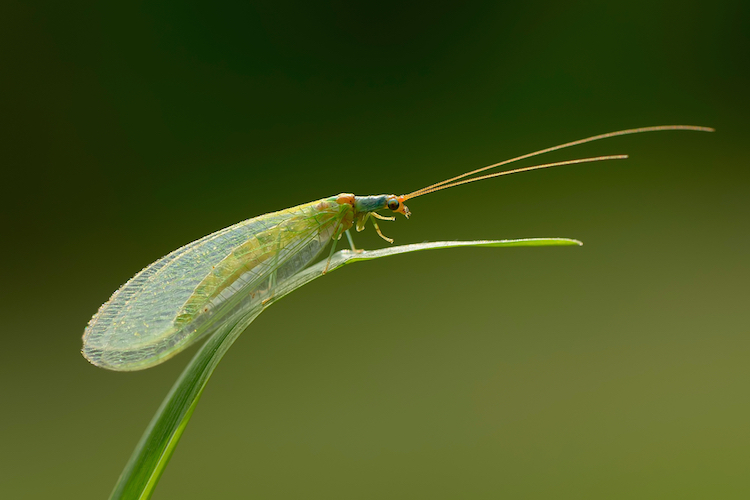
lacewing
Purchase beneficial insects
This can be a good option in some situations and is much better than spraying with pesticides. Insects such as lacewings, lady beetles and predatory mites and wasps can be purchased and let go in your garden to target infestations.
Manually pull off pests with your fingers
When it comes to caterpillars the first action I take is to pick them off leaves, preferably when they are tiny. Look out for small holes when watering your garden so you can get on to them as quickly as possible. Or, for insects such as whitefly, over-head watering might be all you need to cut down the population.
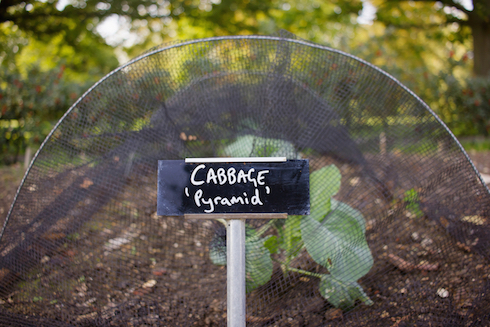
Create physical barriers and traps
Physical barriers are a good protection from pests. Netting off plants works well if it is done at the very beginning before any insects have had a chance to find their way onto them. Crushed eggshells are thought to help protect against slugs and snails because they are unpleasant to move across. Beer traps are also useful for slugs and snails while detergent traps can be useful for many insects.
Practice good hygiene
When pruning plants that are diseased or infested, sterilize secateurs before using with another plant and remove diseased plant material.
Make your own organic sprays
As a last resort, there are a number of sprays you can make yourself but it's important to seek to target only the pest, and to ensure you don't harm either beneficial creatures or the plant you are seeking to protect. For example, avoid applying oil-based spray in the heat. You can make white oil with detergent and oil, a soap spray, coffee spray, garlic spray and many more.
Do you have any tips for deterring pests from your garden? Share in the comments below.

